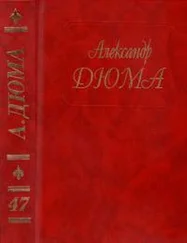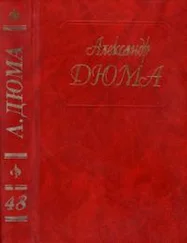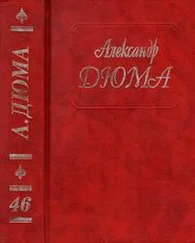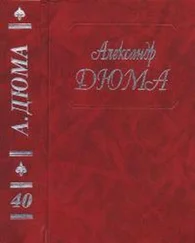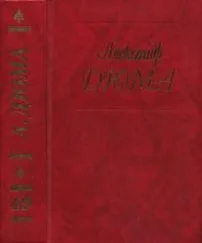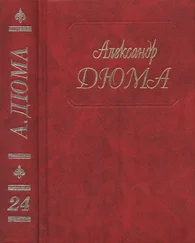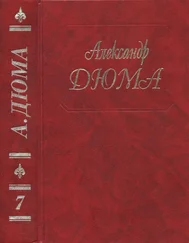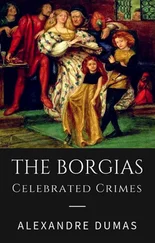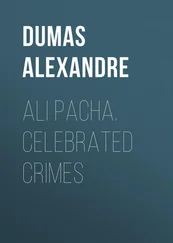The whole day passed thus; for in Rome nobody works. You are either a cardinal or a lacquey, and you live, nobody knows how. The crowd was still extremely numerous, when, towards two o'clock in the afternoon, another procession, which had quite as much power of provoking noise as the first of imposing silence, traversed in its turn the Piazza of St. Peter's: this was the dinner procession. The people received it with the usual bursts of laughter, without suspecting, for all their irreverence, that this procession, more efficacious than the former, had just settled the election of the new pope.
The hour of the Ave Maria came as on the evening before; but, as on the evening before, the waiting of the whole day was lost; for, as half–past eight struck, the daily smoke reappeared at the top of the chimney. But when at the same moment rumours which came from the inside of the Vatican were spread abroad, announcing that, in all probability, the election would take place the next day, the good people preserved their patience. Besides, it had been very hot that day, and they were so broken with fatigue and roasted by the sun, these dwellers in shade and idleness, that they had no strength left to complain.
The morning of the next day, which was the 11th of August, 1492, arose stormy and dark; this did not hinder the multitude from thronging the piazzas, streets, doors, houses, churches. Moreover, this disposition of the weather was a real blessing from Heaven; for if there were heat, at least there would be no sun. Towards nine o'clock threatening storm–clouds were heaped up over all the Trastevere; but to this crowd what mattered rain, lightning, or thunder? They were preoccupied with a concern of a very different nature; they were waiting for their pope: a promise had been made them for to–day, and it could be seen by the manner of all, that if the day should pass without any election taking place, the end of it might very well be a riot; therefore, in proportion as the time advanced, the agitation grew greater. Nine o'clock, half–past nine, a quarter to ten struck, without anything happening to confirm or destroy their hopes. At last the first stroke of ten was heard; all eyes turned towards the chimney: ten o'clock struck slowly, each stroke vibrating in the heart of the multitude. At last the tenth stroke trembled, then vanished shuddering into space, and, a great cry breaking simultaneously frog a hundred thousand breasts followed the silence "Non v'e fumo! There is no smoke!" In other words, "We have a pope."
At this moment the rain began to fall; but no one paid any attention to it, so great were the transports of joy and impatience among all the people. At last a little stone was detached from the walled window which gave on the balcony and upon which all eyes were fixed: a general shout saluted its fall; little by little the aperture grew larger, and in a few minutes it was large enough to allow a man to come out on the balcony.
The Cardinal Ascanio Sforza appeared; but at the moment when he was on the point of coming out, frightened by the rain and the lightning, he hesitated an instant, and finally drew back: immediately the multitude in their turn broke out like a tempest into cries, curses, howls, threatening to tear down the Vatican and to go and seek their pope themselves. At this noise Cardinal Sforza, more terrified by the popular storm than by the storm in the heavens, advanced on the balcony, and between two thunderclaps, in a moment of silence astonishing to anyone who had just heard the clamour that went before, made the following proclamation:
"I announce to you a great joy: the most Eminent and most Reverend Signor Roderigo Lenzuolo Borgia, Archbishop of Valencia, Cardinal–Deacon of San Nicolao–in–Carcere, Vice–Chancellor of the Church, has now been elected Page, and has assumed the name of Alexander VI."
The news of this nomination was received with strange joy. Roderigo Borgia had the reputation of a dissolute man, it is true, but libertinism had mounted the throne with Sixtus IV and Innocent VIII, so that for the Romans there was nothing new in the singular situation of a pope with a mistress and five children. The great thing for the moment was that the power fell into strong hands; and it was more important for the tranquillity of Rome that the new pope inherited the sword of St. Paul than that he inherited the keys of St. Peter.
And so, in the feasts that were given on this occasion, the dominant character was much more warlike than religious, and would have appeared rather to suit with the election of some young conqueror than the exaltation of an old pontiff: there was no limit to the pleasantries and prophetic epigrams on the name of Alexander, which for the second time seemed to promise the Romans the empire of the world; and the same evening, in the midst of brilliant illuminations and bonfires, which seemed to turn the town into a lake of flame, the following epigram was read, amid the acclamation of the people:
"Rome under Caesar's rule in ancient story
At home and o'er the world victorious trod;
But Alexander still extends his glory:
Caesar was man, but Alexander God."
As to the new pope, scarcely had he completed the formalities of etiquette which his exaltation imposed upon him, and paid to each man the price of his simony, when from the height of the Vatican he cast his eyes upon Europe, a vast political game of chess, which he cherished the hope of directing at the will of his own genius.
The world had now arrived at one of those supreme moments of history when every thing is transformed between the end of one period and the beginning of another: in the East Turkey, in the South Spain, in the West France, and in the North German, all were going to assume, together with the title of great Powers, that influence which they were destined to exert in the future over the secondary States. Accordingly we too, with Alexander VI, will cast a rapid glance over them, and see what were their respective situations in regard to Italy, which they all coveted as a prize.
Constantine, Palaeologos Dragozes, besieged by three hundred thousand Turks, after having appealed in vain for aid to the whole of Christendom, had not been willing to survive the loss of his empire, and had been found in the midst of the dead, close to the Tophana Gate; and on the 30th of May, 1453, Mahomet II had made his entry into Constantinople, where, after a reign which had earned for him the surname of 'Fatile', or the Conqueror, he had died leaving two sons, the elder of whom had ascended the throne under the name of Bajazet II.
The accession of the new sultan, however, had not taken place with the tranquillity which his right as elder brother and his father's choice of him should have promised. His younger brother, D'jem, better known under the name of Zizimeh, had argued that whereas he was born in the purple—that is, born during the reign of Mahomet—Bajazet was born prior to his epoch, and was therefore the son of a private individual. This was rather a poor trick; but where force is all and right is naught, it was good enough to stir up a war. The two brothers, each at the head of an army, met accordingly in Asia in 1482. D'jem was defeated after a seven hours' fight, and pursued by his brother, who gave him no time to rally his army: he was obliged to embark from Cilicia, and took refuge in Rhodes, where he implored the protection of the Knights of St. John. They, not daring to give him an asylum in their island so near to Asia, sent him to France, where they had him carefully guarded in one of their commanderies, in spite of the urgency of Cait Bey, Sultan of Egypt, who, having revolted against Bajazet, desired to have the young prince in his army to give his rebellion the appearance of legitimate warfare. The same demand, moreover, with the same political object, had been made successively by Mathias Corvinus, King of Hungary, by Ferdinand, King of Aragon and Sicily, and by Ferdinand, King of Naples.
Читать дальше

